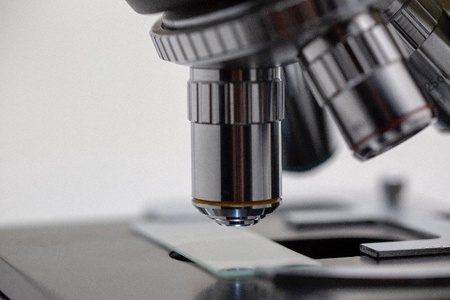There have been increasing appeals from the sensible and skeptical urging public health officials to issue a clear set of nutritional guidelines that put an end to the social media wars around whether vitamin C or D are effective in preventing, mitigating or treating Covid-19. This amalgam of confusion is understandable in light of a flurry of anecdote and unofficial headlines claiming that Covid-19 patients are being treated with high doses of intravenous vitamin C at the Tongji Hospital in China and in ICUs at New York’s largest hospitals. The peak spread of Covid-19 over winter in Europe has also reinforced speculation around the need to supplement for vitamin D.
It is established that optimal nutrition plays a role in supporting a well-functioning immune system. Therefore, it comes as no surprise that groups classified as most vulnerable to Covid-19 carry the burden of diet-related chronic diseases such as diabetes and obesity. Crucially, vitamins like vitamin C and D are a cornerstone of an optimal diet. There is good evidence on the effectiveness of vitamin C in cutting short the duration of colds, particularly in the elderly and those with long-standing illnesses. Similarly, vitamin D has been found to calm the body into a less inflammatory state and to protect against lung injury caused by infection. While this evidence may be a starting point for generating research questions and designing large clinical trials to test them, as is currently underway in China, it cannot be taken as evidence of benefit against Covid-19. In fact, the British Medical Journal just released a short report on vitamin D and Covid-19 to offer a balanced scientific view on the state of evidence; in this report the authors specifically caution against high dose supplementation and endorse prevention of deficiency at all times by regular exposure to sunlight in short bouts at midday, consumption of a diet of fresh and fortified foods and supplementation in accordance with government guidelines (400 IU/day for the UK).
Actionable dietary recommendations have also been published by a number of global advisories. In summary, the World Health Organisation’s “Food and nutrition tips during self-quarantine” reiterates the principles of healthy eating. The report advises that individuals and families eat a varied diet that prioritizes fibre-rich wholegrains, plant-based proteins like lentils and fresh produce if available or otherwise frozen fruits and vegetables. Given that a lot of people will lean towards products of a longer shelf-life, WHO advises that canned vegetables are rinsed to remove excess salt as a way of reducing intake to less than 5g a day. Notably, small changes to cooking methods such as steaming or sautéing in place of frying can aid in limiting fat intake and elevating diet quality. The guide is packed with more practical tips to help limit intake of saturated fats, trans fats and free sugars. Relatedly, nutritionists at the World Food Programme have come up with a handy way of classifying quarantine foods into GROWs (meat, fish, eggs, milk and other dairy), GLOWs (colourful fruits and vegetables) and NOs (heavily processed foods).
Nutritional guidelines from the experts at ESPEN explicitly highlight malnutrition as an important risk factor for a weakened immune system, promoting adequate intake of micronutrients with evidenced anti-infection properties such as vitamins A, D, B, C, omega-3 polyunsaturated fatty acids, as well as selenium, zinc and iron as per existing recommended daily allowances. All together, these messages are timely in a global landscape that is doubly burdened by undernutrition and overweight, a fact echoed in the Global Nutrition Report 2020 which emphasizes good nutrition as an essential part of defence against Covid-19.
Resources
- ANDREW, S. A., CARR. MARGREET, VISSERS. FLORA TEOH. 2020. No, the Shanghai government has not recommended intravenous vitamin C as a treatment for COVID-19. [Online]. Health Feedback. Available: https://healthfeedback.org/claimreview/no-the-shanghai-government-has-not-recommended-intravenous-vitamin-c-as-a-treatment-for-covid-19/ [Accessed 19/04/2020 2020]
- LORENA, M. B., GOLDING. 2020. New York hospitals treating coronavirus patients with vitamin C. New York Post.
- RAN, L., ZHAO, W., WANG, J., WANG, H., ZHAO, Y., TSENG, Y. & BU, H. 2018. Extra Dose of Vitamin C Based on a Daily Supplementation Shortens the Common Cold: A Meta-Analysis of 9 Randomized Controlled Trials. BioMed Research International, 2018, 1-12.
- EAMON, L. R. A., KENNY. 2020. Vitamin D deficiency in Ireland - implications for COVID-19 Results from The Irish Longitudinal Study of Ageing (TILDA). Irish Longitudinal Study on Ageing.
- Vitamin D and SARS-Cov-2 virus/COVID-19 disease. (2020, May 13). BMJ Nutrition, Prevention & Health. https://nutrition.bmj.com/content/early/2020/05/13/bmjnph-2020-000089
- World Health Organization. (2020). Food and nutrition tips during self-quarantine. https://www.euro.who.int/en/health-topics/health-emergencies/coronavirus-covid-19/novel-coronavirus-2019-ncov-technical-guidance-OLD/food-and-nutrition-tips-during-self-quarantine
- World Food Programme. (2020, April 3). Food for thought: 7 tips on keeping a healthy diet (in the face of coronavirus). https://insight.wfp.org/food-for-thought-7-tips-on-keeping-a-healthy-diet-in-the-face-of-coronavirus-7fab7f06177
- ROCCO, B. S., BISCHOFF. ZELJKO, KRZNARIC. MATTHIAS, PIRLICH. PIERRE, SINGER. 2020. Espen experts' statements and practical guidance for the nutritional management of individuals with sars-cov-2 infection (Pre-proof). Clinical Nutrition.
- PHE 2020. Government Dietary Recommendations: Government recommendations for energy and nutrients for males and females aged 1 - 18 years and 19+ years. UK.: Public Health England.
- 2020 Global Nutrition Report: Action on equity to end malnutrition - World. (2020). ReliefWeb. https://reliefweb.int/report/world/2020-global-nutrition-report-action-equity-end-malnutrition
Photo credits: Artists from Unsplash: Michael Longmire, Centre for Disease control (CDC) and Chris Liverani


